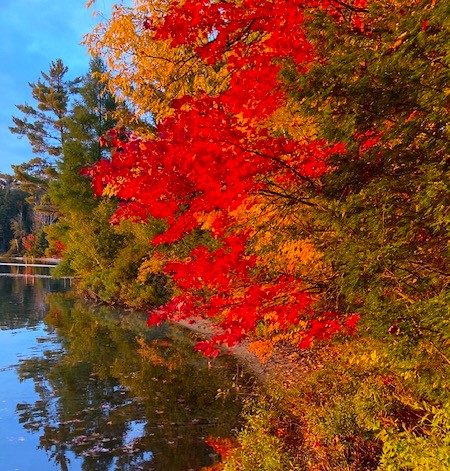 Ann Sheppard
Ann Sheppard
Fire and Paradise
by JAMES ANDREWS
WORSHIP thou God in such wise that if thy worship lead thee to the fire, no alteration in thine adoration would be produced, and so likewise if thy recompense should be paradise. Thus and thus alone should be the worship which befitteth the one True God. Shouldst thou worship Him because of fear, this would be unseemly in the sanctified Court of His presence, and could not be regarded as an act by thee dedicated to the Oneness of His Being. Or if thy gaze should be on paradise, and thou shouldst worship Him while cherishing such a hope, thou wouldst make God’s creation a partner with Him, notwithstanding the fact that paradise is desired by men.
Fire and paradise both bow down and prostrate themselves before God. That which is worthy of His Essence is to worship Him for His sake, without fear of fire, or hope of paradise. — The Báb, Selections from the Writings of the Báb, 77-78.
Growing up Catholic, I was used to thinking about heaven and hell. My prayers were often about getting to one and avoiding the other. When I read this passage about worship in the Persian Bayan, I was taken aback. The message is unequivocal: worship God and never mind the results, and don’t expect anything in return. Only this kind of worship is worthy of God.
Worship — just saying the word conjures a unique state and manner of prayer. One may think of all the other words that one associates with prayer — praise, thanksgiving, entreaty — yet, the kind of prayer I am thinking of is none of these things. How is this so? I decided to explore this passage further. More questions emerged. Upon reflection, my spirit answered.
How can worship lead to fire? How can worship result in paradise? The questions suggest a cause and effect, something leading to something. But the Báb tells us that worship of God is not so. In worship, God is central. It is “an act . . . dedicated to the Oneness of His Being.” God is indivisible, and one’s worship must be undivided and unexpectant.
“. . . if thy worship lead thee to the fire . . .” — what is the fire to which worship can lead? Passion, desire — internal states? Or the external states of persecution, and even martyrdom?
“. . . if thy recompense should be paradise . . .” — what is the paradise for which worship could be the recompense? Feelings of joy, delight, wonderment, ecstasy.
One’s state and manner of worship must be singular and unaffected: “if thy worship lead thee to the fire, no alteration in thine adoration would be produced, and so likewise if thy recompense should be paradise.”
Worship — an intimate, reverent, loving communion with one’s Creator. It does not allow for distraction. Fear has no place. It is “unseemly in the sanctified Court of His presence.” To be fearful is to be aware of oneself, not attentive to Him. Nor can it be done with a “gaze” on or “hope” for “paradise.” One cannot simultaneously focus on two things; the two things become one and hence one positions oneself to become partners with God, to put God and what He created on the same plane: “ . . . thou wouldst make God’s creation a partner with Him . . . .”
In the final sentence, the Báb emphasizes the necessity of detachment in worship: “Fire and paradise both bow down and prostrate themselves before God.” He continues, “That which is worthy of His Essence is to worship Him for His sake, without fear of fire, or hope of paradise.”
My reflection wraps me in stillness as I apprehend the true nature of worship, holding only love for God in my heart and in my soul.

James Andrews

